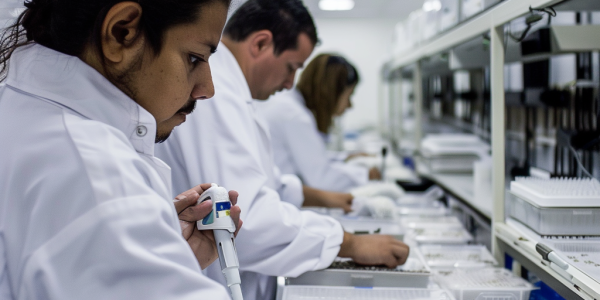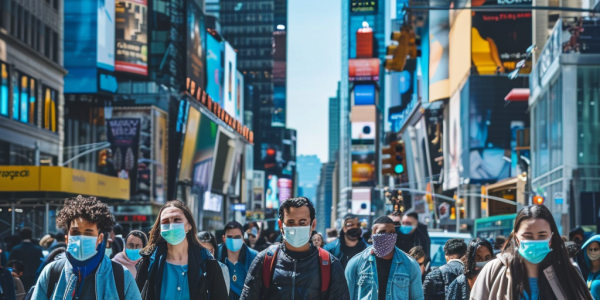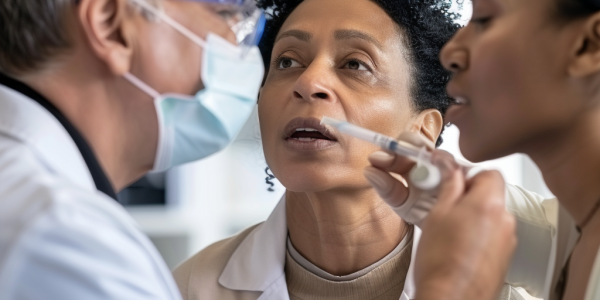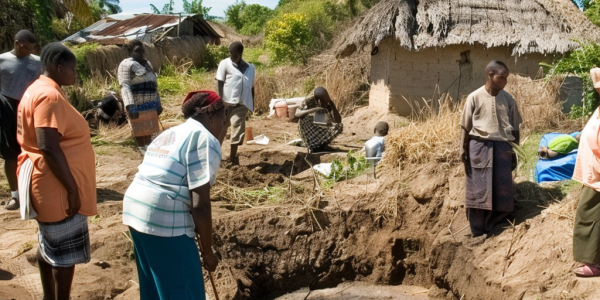Brazil Unveils Wolbachia Biofactory to Combat Dengue
The Ministry of Health, in collaboration with Fiocruz, unveiled the Wolbachia Biofactory in Belo Horizonte to combat dengue and other arboviruses. The facility will produce Aedes aegypti mosquitoes using the Wolbachia Method, playing a crucial role in preparing for future epidemics. Managed by Fiocruz and WMP, the Biofactory aims to release two million mosquitoes weekly to create a population incapable of transmitting diseases. This innovative strategy involves releasing Wolbachia-carrying mosquitoes to prevent the transmission of dengue, Zika, and chikungunya viruses.
Monkeypox Cases Surge in New York City
Monkeypox cases in New York City have surged, with an average of dozens of cases per month reported since October. The city Department of Health and Mental Hygiene issued a warning highlighting a total of 256 cases from October to April 15, with most cases affecting Black or Hispanic individuals aged 25 to 44. Despite the rise, the current numbers are lower than the 2022 global outbreak, emphasizing the importance of vaccination and preventive measures to curb the spread of the virus.
Metformin Shows Promise in Reducing SARS-CoV-2 Levels in Clinical Trial
A recent clinical trial by University of Minnesota researchers found that the common diabetes drug metformin can reduce SARS-CoV-2 levels in the body, potentially lowering the risk of rebound symptoms. The study focused on standard-risk individuals and showed that metformin could decrease viral load, prevent hospitalization or death, and reduce the incidence of long COVID. Early intervention with metformin led to a 3.6-fold reduction in viral load by day 10 and decreased the likelihood of hospitalization or death by 58% within 28 days.
Skin Cancer Awareness Month in Hawaii: Innovative Tools for Prevention
Learn about the impact of the sun on skin and the importance of preventive measures in Hawaii during Skin Cancer Awareness Month. Discover how the Skin Check Van is providing essential tools and resources to educate the community on sun damage and reduce the risk of skin cancer. Find out why daily use of sunscreen, UV-protective clothing, and seeking shade are crucial in preventing skin damage.
Beware of Health Halos in Your Food Choices
Courtney Smith, a registered dietitian, warns of ‘health halos’ in foods that are marketed as healthy but hide harmful ingredients. Granola and granola bars may contain added sugar, while trail mix often includes candy and sweetened nuts. Smith recommends opting for nutrient-dense snacks like fruits with healthy fats or proteins instead.
The Healing Power of Touch: How Affectionate Contact Can Improve Health and Happiness
Discover the incredible health benefits of affectionate touch according to a recent review of over 200 studies. From reducing pain and anxiety to promoting healthy weight gain in newborns, the power of touch is undeniable. Whether it’s a hug from a loved one or a gentle massage, the positive impact on physical and mental well-being is clear.
Study Suggests IVF Babies May Have Higher Risk of Childhood Leukemia
Recent research suggests that babies born through IVF may have a higher risk of developing childhood leukemia. However, experts caution that the technology itself may not be the direct cause, as older and less fit couples who undergo IVF treatment may have a higher chance of having children with leukemia in general. With a success rate of up to 40%, IVF remains a viable option for many couples. Charities reassure parents not to be overly alarmed, as the overall risk of children conceived via IVF developing leukemia is still low. Further research is needed to fully understand the potential implications of IVF on childhood leukemia risk.
The Benefits of Walking and Diverse Movement Patterns for Overall Well-Being
Discover the health benefits of walking and how achieving 2,300 steps per day can lower the risk of cardiovascular disease-related mortality. Despite its advantages, some experts argue that walking may not qualify as high-quality exercise. Learn about the three essential forms of movement necessary for overall well-being and why incorporating diverse movement patterns into daily routines is crucial for achieving functional fitness.
Squirrels May Have Spread Leprosy to Humans in Medieval Times, Study Suggests
Researchers have found evidence suggesting that squirrels may have played a role in spreading leprosy to humans during medieval times. The study analyzed human and red squirrel bones from archaeological sites in Winchester, southern England, identifying closely related strains of the bacteria that causes leprosy. This groundbreaking research sheds new light on the complex history of leprosy and highlights the potential role of squirrels in disease transmission.
Climate Change Amplifying Risk of Malaria Resurgence, Say Specialists
Climate change is amplifying the risk of a resurgence of malaria, with changing weather patterns creating a more favorable environment for mosquitoes to thrive. The surge in malaria cases in Mozambique’s Manica province highlights the ongoing threat posed by this disease, exacerbated by the impact of extreme weather events and food insecurity. As climate change drives environmental changes, the risk of mosquito-borne infections is expected to escalate, emphasizing the need for a comprehensive approach to disease control and prevention.










